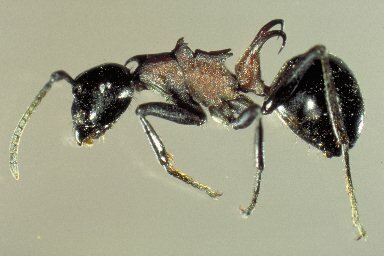Not likely, but new research does show that a particular species of Chinese medicinal ant known as Polyrhachis lamellidens, may help fight rheumatoid arthritis. The study appears in the April 25, 2008 issue of Journal of Natural Products.1
Zhi-Hong Jiang, PhD, of Hong Kong Baptist University in China and colleagues analyzed extracts from these ants, which are traditionally used in folk medicine. The researchers isolated two new bicyclic polyketide lactones, polyrhacitides A (1) and B (2),which may be responsible for the ants' purported anti-inflammatory and painkilling substance effects.
They isolated the absolute structures via spectroscopic analyses and chemical evidence. "The occurrence of polyketides with similar structures in plants of the Lamiaceae, Lauraceae, and Staphyleaceae indicates their significance in the study of chemical ecology," they conclude. The species of ant has also been shown to help treat hepatitis.

Polyrhachis lamellidens, a Chinese medicinal ant used in arthritis treatment.
Coming soon to a colleague near you?
"You never know," commented Martin J. Bergman, MD, chief of rheumatology at Taylor Hospital in Ridley Park, Pennsylvania. "Folk remedies that have been around for some period of time may be of some benefit. I can see a product coming to market, but speaking for my own patients or waiting room, I don’t know that we will have a lot of ants crawling around."
Reference
1. Jiang ZH, Yang QX, Tanaka T, et al. Bicyclic polyketide lactones from Chinese medicinal ants, Polyrhacis lamellidens [published online ahead of print February 26, 2008]. J Nat Prod. 2008; doi: 10.1021/np070558l. http://pubs.acs.org/cgi-bin/abstract.cgi/jnprdf/2008/71/i04/abs/np070558l.html.






